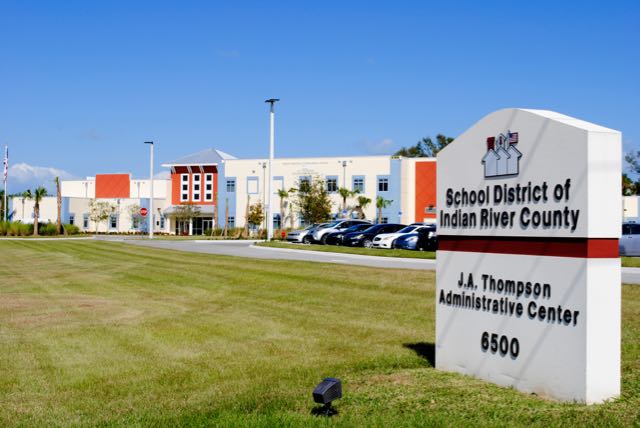
In an effort to boost declining enrollment, Indian River could become the second county in Florida to open a public magnet school based upon an increasingly popular Classical Learning Model featuring a curriculum rooted in the Classical Greek and Roman traditions of art, literature, science and language.
The classical model employs a back-to-the-basics approach which could appeal to parents who feel public education has ventured far afield from teaching foundational knowledge in reading, writing, arithmetic and the natural sciences.
Since the 2018-2019 school year, despite an overall 11 percent growth in Indian River County population adding nearly 18,000 people, the school district’s enrollment declined by 850 pupils, equating to a loss of $1.6 million in funding. Yet, as the total number of students declined, applications to the district’s three magnet schools increased.
“There is an appetite for a fourth magnet school,” Superintendent of Schools Dr. David Moore said at a February workshop.
For the 2023-2024 school year, 57.9 percent of students applying to the top six county schools did not get their first choice. The three magnet schools, Liberty, Osceola and Rosewood, had the highest number of applicants.
Three other elementary schools were in-demand for students wishing to attend outside their geographic district zone – Beachland, Treasure Coast and Citrus Elementary Schools followed with more applicants than seats available. On the opposite end, other district elementary schools are running well below 100 percent capacity.
“We have one seat for every two children,” Moore said, noting that fully enrolled schools are self-funded. It takes a certain number of students enrolled to support the operation of the school facility and things like the library, cafeteria, guidance and administration, plus art, music and physical education, which benefit the entire school.
“We cannot have schools that run at 50 percent,” Moore said.
According to Board Chair Teri Barenborg, decreased enrollment can be attributed to an increase in an older population and many options for schooling, such as homeschooling, online classes, and private and charter schools. “Parents need to have choice,” said Barenborg, adding, “What do we need to do to attract people?”
A classical model magnet school could help bring some homeschooled students back into the public school system, as most homeschool curricula follow a classical model to some extent.
For example, Great Books for Literature and Singapore Math, often used to teach homeschoolers, are listed in the magnet’s proposed curriculum and taught at several of the schools county officials researched and one they visited.
School officials, including Moore and Director of Academic Compliance and Equity Dr. Kyra Shafte, recently visited True North Classical Academy, a tuition-free charter school in Miami where classical education is thriving.
“It was a validation that it can, in fact, be done. The team was very encouraged,” said Moore, who added that all the state requirements would be met. “We think we could do it better,” he said.
True North, founded in 2015 and ranked high on the list of top Florida schools, uses a yearly lottery with a waiting list of over 2,000 students. The 2024-2025 school year applicants were expected to learn of their acceptance last week.
Besides the True North visit, school officials have researched eight classical model schools thus far. School Board members will individually conduct their own school visits, due to Florida’s Sunshine laws. “It’s looking at the research and the demand. We have to be very responsive to what the community wants,” Moore said. Community and parent surveys are currently in preparation.
Eighteen classical model schools have opened in Florida in recent years, and more are coming. Classical model schools are one of the fastest growing choices in Florida. Miami-Dade County Schools are about four months ahead of IRC in the process of opening the first public classical magnet, according to Moore.
Based on the proposed timeline, parent and community surveys will go out in May or June, and instructional materials will be reviewed in August. If the plan moves forward, enrollment will begin in November 2024. The goal would be to offer the classical model all the way through 12th grade, phased-in as the first classes of primary-grade students advance.
Kindergarten and first grade would commence at the new school for the 2025-2026 school year, and additional grades would be rolled out each school year through the 2030-2031 school year, completing the process with 11th and 12th grades. “The offering is K-12, but definitely not at one site,” Moore said.
Whether the classical model magnet comes to IRC schools depends on the community. “As the public school, I want to be their choice,” Moore said. “The only way we have to increase money is to increase students.”
“Once we determine there is a big interest, we will move forward,” Barenborg said.



